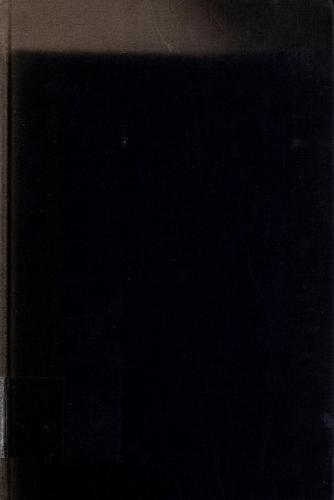Check nearby libraries
Buy this book

In this study of the history of dynamic psychiatry, Ellenberger provides an account of the early history of psychology covering such figures as Franz Anton Mesmer, Sigmund Freud, Carl Jung, Alfred Adler, and Pierre Janet. The work has become a classic, and has been credited with demolishing the myth of Freud's originality and encouraging scholars to question the scientific validity of psychoanalysis. Critics have questioned the reliability of some of Ellenberger's judgments. [...]
Ellenberger shows that Freud was dependent on earlier writers, especially Janet. He describes psychoanalysis and analytical psychology as forms of hermeneutics (the art or science of interpretation), comparing both disciplines to the philosophical schools of Graeco-Roman antiquity.
Freud, according to Ellenberger, was heir to the Protestant Seelsorge or "Cure of Souls", a practice that arose after Protestant reformers abolished the ritual of confession. During the 19th century, the idea of unburdening oneself by confessing a shameful secret was gradually transferred from religion to medicine, influencing Mesmer's animal magnetism, and eventually Freud.
Ellenberger argues that evaluating Freud's contributions to psychiatry is made difficult by a legend involving two main features that developed around Freud: the first being, "the theme of the solitary hero struggling against a host of enemies, suffering the 'slings and arrows of outrageous fortune' but triumphing in the end", and the second, "the blotting out of the greatest part of the scientific and cultural context in which psychoanalysis developed". The first aspect rested on exaggeration of the anti-Semitism Freud encountered, as well as overstatement of the hostility of the academic world and the Victorian prejudices that hampered psychoanalysis. The second aspect led to Freud being credited with the achievements of others. [Excerpted from the Wikipedia article]
Check nearby libraries
Buy this book

Previews available in: English
Subjects
History, Psychiatry, Psychoanalysis, Psiquiatria, Psychiatrie, Psychanalyse, Histoire, Tiefenpsychologie, Psychoanalyse, Terapia psychodynamiczna, Geschichte, Analytische Psychologie, Subconsciousness, Psychiatry, history, Psychoanalysis--history, Psychiatry--history, Bf173 .e6, Wm 11 e45d 1970, 150.19/5| Edition | Availability |
|---|---|
|
1
The discovery of the unconscious: the history and evolution of dynamic psychiatry
1994, Fontana
in English
0006863205 9780006863205
|
zzzz
|
| 2 |
zzzz
|
|
3
The discovery of the unconscious: its history and evolution of dynamic psychiatry
1970, Allen Lane, the Penguin Press
0465016723 9780465016723
|
zzzz
|
|
4
The discovery of the unconscious: the history and evolution of dynamic psychiatry.
1970, Allen Lane
in English
0713901535 9780713901535
|
zzzz
|
|
5
The discovery of the unconscious: the history and evolution of dynamic psychiatry
1970, Basic Books
in English
0465016723 9780465016723
|
aaaa
|
Book Details
Edition Notes
Includes bibliographical references.
6
Classifications
The Physical Object
ID Numbers
Source records
The Laurentian Library MARC recordIthaca College Library MARC record
Internet Archive item record
OpenLibraries-Trent-MARCs record
University of Prince Edward Island MARC record
marc_openlibraries_phillipsacademy MARC record
marc_claremont_school_theology MARC record
Library of Congress MARC record
marc_claremont_school_theology MARC record
amazon.com record
marc_columbia MARC record
marc_columbia MARC record
marc_nuls MARC record
harvard_bibliographic_metadata record
ISBNdb
marc_columbia MARC record
Community Reviews (0)
History
- Created April 1, 2008
- 20 revisions
Wikipedia citation
×CloseCopy and paste this code into your Wikipedia page. Need help?
| August 9, 2024 | Edited by MARC Bot | import existing book |
| December 19, 2023 | Edited by ImportBot | import existing book |
| December 13, 2023 | Edited by MARC Bot | import existing book |
| March 7, 2023 | Edited by MARC Bot | import existing book |
| April 1, 2008 | Created by an anonymous user | Imported from Scriblio MARC record |














